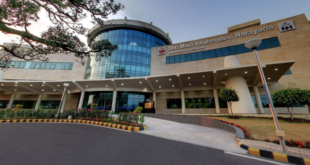Yogesh Bandh
India has taken early action to limit the spread of COVID-19. These measures has helped in limiting the health crisis, but—as in other countries—the complete lockdown of all economic activities except essential services have created an economic crisis and misery for the poor, with massive job losses and rising food insecurity, disrupting activities in agriculture and supply chains.
Amidst the threat of COVID-19 spread, the rabi crops are approaching maturity. Harvesting of wheat is approaching in several northern states. Mustard is the second important rabi crop, manual harvesting is in progress and threshing is due wherever already harvested. Harvesting of lentil, maize and chillies is in progress and gram is fast approaching. Sugarcane harvesting is also at peak and is also time for manual planting in the north.
Harvesting and handling of these produce including its movement to the market are inevitable as the agricultural operations are time bound. However, famers are to follow precautions and safety measures to be taken to prevent the disease spread. Simple measures include social distancing, maintaining personal hygiene by washing of hands with soap, wearing of face mask, protective clothing and cleaning of implements and machinery. Workers to follow safety measures and social distancing at each and every step in the entire process of field operations.Government already have been exempted several actvities for farmers and farming sector during lockdown period,
e.g. Farming operations by farmers and farm workers in the field, Agencies engaged in procurement of agriculture products, including MSP operations, ‘Mandis’ operated by the Agriculture Produce Market Committee or as notified by the State Government, Custom hiring centres (CHC) related to farm machinery, Manufacturing and packaging units of Fertilizers, Pesticides and Seeds, Intra and inter-state movement of harvesting and sowing related machines like combined harvester and other agriculture/ horticulture implements, etc.
These exemptions will facilitate unhindered activities related to agriculture and farming so as to ensure essential supplies and farmers do not face any difficulty during the lockdown.
However, in this omnious impact of COVID-19, small and marginal farmers find themselves in vulnerable situation as the standing crop is their only capital for investment and consumption activites. Therfore, it is necessary to plan and arrange convenient selling of their Rabi Crops.
Government already have announced Minimum Support Prices for 6 Rabi Crops, now this is the time to procure their crop to provide them immidiate income. This will not only help to meet their necessary requirements but also help to boost the rural economy.
In its business as usual scenario, government mechanism work through four different channel, i.e. Centralized Procurement System by the Food Corporation of India (FCI), the nodal central agency of Government of India (GoI), along with other state agencies undertakes the procurement under its price support scheme mainly to ensure remunerative prices to farmers for their produce.
The Decentralized Procurement System (DPS) by state agencies was introduced by the GoI in 1997-98 with a view to enhancing the efficiency of procurement. The system also seeked to encourage local procurement to the maximum extent thereby extending the benefits of MSP to local farmers as well as to enable them to save on transit costs.
In another option to enhance the coverage of food grain procurement, the central government approved the gradual entry of private companies into the procurement process of food-grains in September 2018 by advising amendment in APMC Acts of states. That may also enables the corporate sector to set up private agriculture markets in the state and procure produce directly from the farmers. The move was likely to benefit farmers enabling them to enhance their incomes from agriculture activities.

In its recent move, the Government of India has established National Agriculture Market (e-NAM) On April 14 2016, as a pan-India electronic trading portal for farm produce which creates a unified national market for agricultural commodities by integrating the existing Agriculture Produce Market Committee (APMC) markets, managed by the Small Farmers’ Agribusiness Consortium (SFAC).
To sell their produce via eNAM, farmers are required to register themselves on the portal. FPOs/Farmer Producer C companies (FPCs) also can register themselves on the eNAM Portal. eNAM records all registrations digitally and assigns unique LOT id’s (identification number assigned to a particular quantity or lot of produce from a single farmer/farmer group) that can be tracked on mobiles until it is sold.
This digitization is aimed at reducing the time of transaction in an eNAM mandi. The Ministry of Agriculture, GoI has asked states to rationalise taxes levied on food grains, and has decided to broad base its procurement of food grains. Currently, as many as 17 states and 1 Union Territory (UT) that have fully / partially modified their APMC Acts include Andhra Pradesh, Gujarat, Himanchal Pradesh, Karnataka, Rajasthan, Goa, Madhya Pradesh, Telangana, Chhattisgarh, Mizoram, Punjab, Maharashtra, Uttar Pradesh, Uttarakhand, Jharkhand, Nagaland, Haryana and Chandigarh (UT).
Currently, the eNAM is linked with 585 markets (APMCs), with over 45 lac farmer membership in 15 states. Different state governments have issued 27,956 Unified licenses to private entities, besides there are 1,28,015 registered traders on e-NAM. At this time of crisis these Unified licenses holder can be mobilised for direct procurement of Rabi crop from farmers.
Today, in his fourth address to nation Prime minister has announced to extend the lock down till 3rd May, with some conditional relaxation from 20th April. The temperature in the most of wheat growing areas is still below long-term average and therefore likely to delay wheat harvesting by atleast 10-15 days beyond April 10, therefore, farmers can delay wheat harvesting till April 20 without incurring any significant loss, which gives enough time to manage logistics for procurement and announcement of dates.
Many state government e.g. Uttar Pradesh, and Telangana has initiated to start wheat procurement from designated centers. However it is evident that the government procurement centers has never succeeded to procure assigned quantum of food grain. For example previous year the state of Uttar Pradesh, out of 30 million quantal, targated to procure 5 million quantal wheat from farmers but the final tally was only 3.7 million quantal.
This year, it is again targeting to procure 5.5 million quantal, whereas total output in the state is expected to 32.5 million quantal. In present scenario, it is tough for a small farmer to bring their output to designated market when transportation and other activities have ristricted mobility, further it will create rukus of long waiting ques and unintended crowd in market.
State procurement agencies also will need to take up the responsibility of disinfecting market areas and providing suitable masks to every person involved in the procurement process, such as department personnel, farmers, labourers, transporters, etc.. these collection center will need to be structured in such a manner that they are able to operate from distant places and helps prevent the spread of the virus.
In absence of such precautions, the procurement process will be complex and risky. The problem with eNAM is that its platform in many states still remains to be fully functional. Therefore,
It may be good option to facilitate door to door procurement through registered unified licence holders. This will facilitate not only procurement process but also help to reduce burden of transportation and storage logistics. This is high time to not only activate eNAM stakeholders to mitigate the distress but also establish a mechanism for future for ever deficient Procurement-Transportation-Storage logistic arrangements.
eNAM in this way will create new avenues in shaping the agriculture market for future.
 Jubilee Post News & Views
Jubilee Post News & Views




